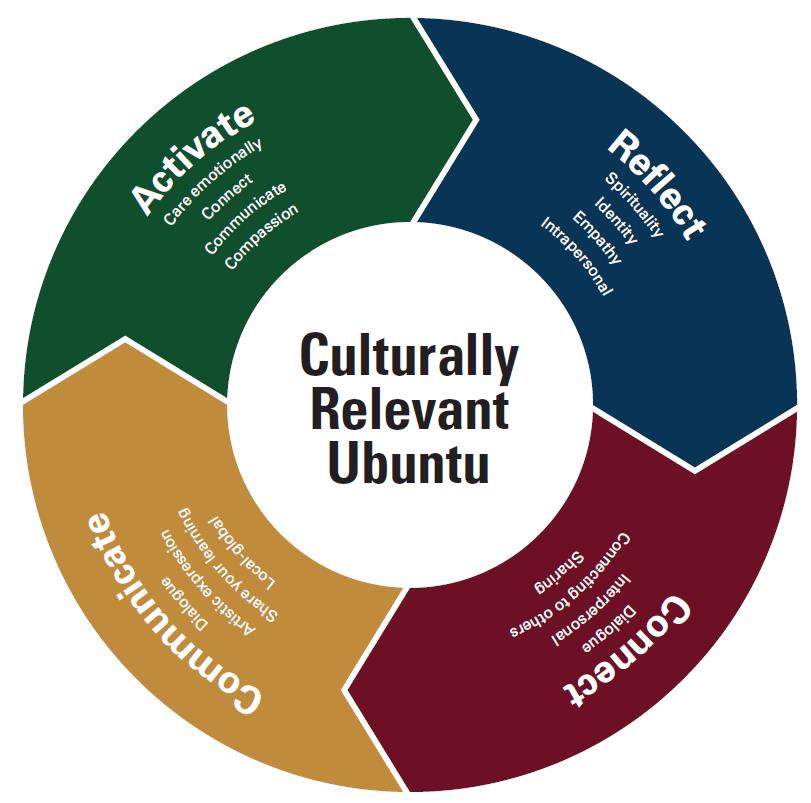Section 2 ARCC: Operationalizing the Learning Experience with An African Epistemology
1. Activate
- Care – emotionally
- Connect
- Communicate
- Compassion
2. Reflect
- Spirituality
- Identity
- See yourself in the other (empathy)
- Internal reflection
- Intrapersonal communication
3. Connect
- Dialogue
- Interpersonal
- Thoughts connecting to other people
- Sharing
4. Communicate
- Dialogue
- Artwork
- Communicate what they learned
- Local and global considerations

“The use of the culturally relevant African Ubuntu epistemology in the Teaching Nelson Mandela (TNM) Curriculum Project extends out of Dr. Dolana Mogadime’s (2010) research with South African school leaders. See Mogadime, D., Mentz, PJ (Kobus), Armstrong, D. E. and Holtam, B. (2010). “Constructing self as leader: Case studies of women who are change agents in South Africa.” Urban Education 45(6), 797-821. Additionally, as a South African woman of Zulu and Sotho heritage, Dr. Mogadime wanted to honour the contribution of African people in the study of Nelson Mandela and women’s contributions to political change. As TNM Project Lead, Dr. Mogadime incorporated the Ubuntu Epistemology into the visual used. Ms. Anneke McCabe introduced the acronym “ARCC” to the TNM Curriculum Project. As a collective body, the TNM Advisory Group further articulated, specified and, most importantly, expanded on the ARCC idea, specifically in relation to the culturally relevant African Ubuntu epistemology for the Teaching Nelson Mandela project.” (Dr. Dolana Mogadime, TNM Advisory Group Chair, 2019)
- Section 2 ARCC: Operationalizing the Learning Experience with An African Epistemology, is reproduced from, Mogadime, D. (TNM Advisory Group Chair and Project Lead) with Senior Advisory Members, Anneke McCabe, Sally Hooper and Sherilyn Lehn. Teaching Nelson Mandela: Learning Experiences and Lessons to Support Grade 7-12 Classrooms. Canadian Museum for Human Rights, EPublication. ISBN: 978-0-9813127-7-4. Licensed under Creative Commons Attribution-Noncommercial-ShareAlike 4.0 International (CC BY-NC-SA 4tin.0). ↵

